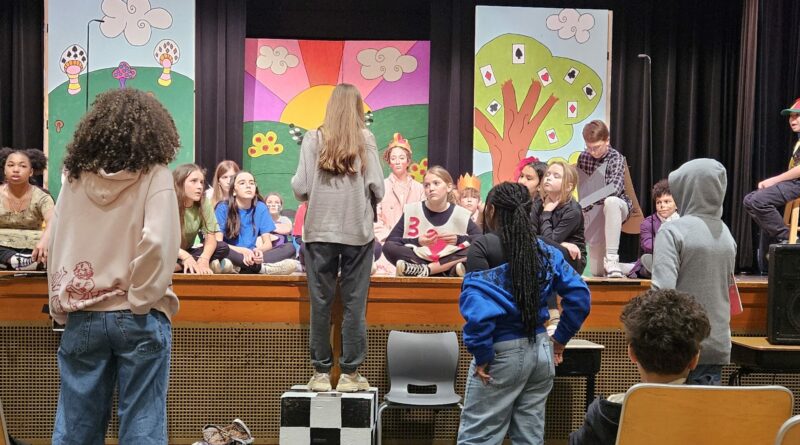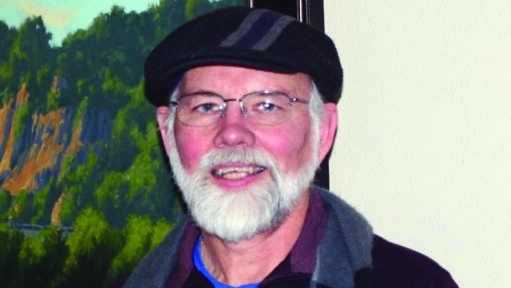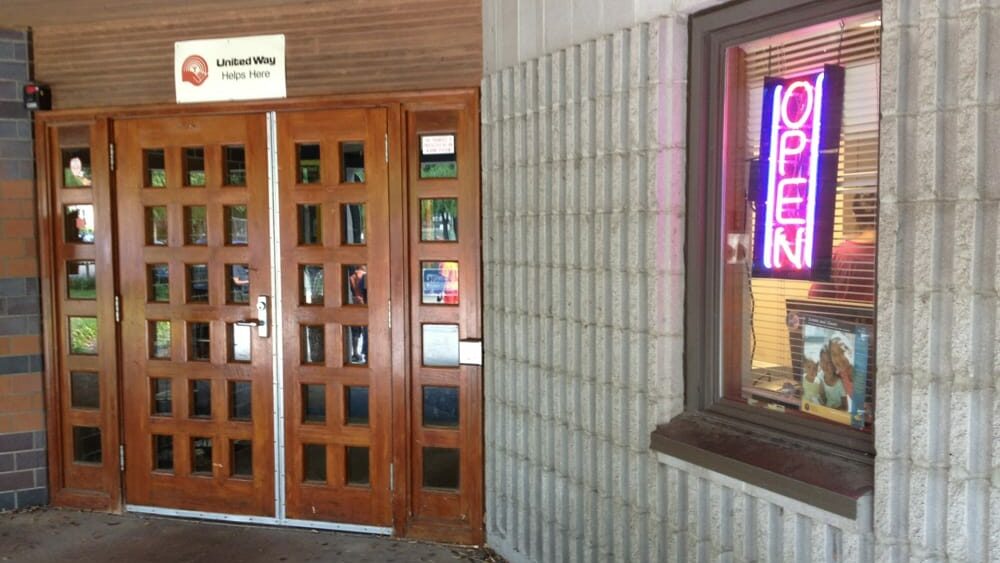Alice’s Adventures in Wonderland Brings Diversity to Global Arts Plus
8th Grader, Global Arts Plus
On Thursday, May, the Global Arts Plus Upper (GAPU) Campus theater team prepared for opening night of this year’s spring play, “Alice’s Adventures in Wonderland.” For GAPU students, it’s undeniable that being a part of the after school theater program is an incredibly unique and valuable experience.
There are many reasons why our school’s approach to theater is special. For the spring play, one of the biggest reasons is our 8th Grade Directing & Design Project, which is a program that gives 8th grade students who have previously been a part of the school play an opportunity to become an assistant director, assistant technical director, or a student movement coach. When a student is chosen for any of these roles, they work alongside Fathimath Rasheed, a GAPU theater teacher and the main director of all productions at our school, to learn new leadership skills and to experience a role in a production that most people wouldn’t get the opportunity to explore until adulthood.
Rasheed often speaks on how one of the most important goals of her theater program is to challenge people’s ideas of what a production should look like. For this show, she casted two actors to play Alice, both of which are African American. The two actors alternated scenes throughout the play. The choice of having two Alices was made partly because of the sheer amount of lines Alice has, but it also ended up being a great example of how the GAPU theater program is committed to creating a show that is not only entertaining, but also stands out and leaves you thinking. Diversity and acceptance is something Rasheed prides herself on creating a space for in the after school theater community.
“There are so many opportunities where you get to make friendships with people who don’t look like you or talk like you and that really changes your viewpoints. And it all just is so natural here,” Rasheed said.
The student directors have an equally important role to Rasheed in the production. They greatly influence and often lead decisions like who gets cast, set design choices, how lines are spoken and so much more that you would usually expect to be the sole burden of the adult theater director. When given these opportunities, it’s an extremely effective learning experience for everyone involved in the play.
“We got a lot more influence in the decisions that were made in the acting, and Ms. Rasheed let us have a more student influenced production,” said student director Hadiyah. “It was a really unique experience and very unique to our school.”
Adds student director Nina: “It made it different because it was a different pov into all the things that happened behind the scenes and I worked with tech crew more than when I was an actor. I learned a lot of new skills like being patient, and realizing that not everyone will be able to live up to your expectations, and instead just getting to know them and accepting where they’re at, and seeing their potential. I learned a lot about communication and how important it is in a production.”
The assistant technical directors had a great experience as well. “Talking about the production with other directors was one of my favorite things, and passing ideas back and forth,” said Sophia S. Adds Ceci, “I definitely felt like there were responsibilities and pressure to succeed, and I liked the challenge.”
New to the 8th grade project this year was a movement coach position, taken on by Stella. “It was different because it felt like a basketball court, like being on the sidelines instead of actually playing the game. There were some parts where I got to be in the game, and it has been different for me to be a leader instead of being an actor.”
Finally, the two Alices had a special time working to tell the story. “It was lots of fun,” said Alyvia, who played Alice #1. “I really liked hanging out and planning with Skye (Alice #2. “It was weird to have two Alices, but I kinda understood it because I wouldn’t have been able to remember all the lines,” Skye said.
Directors learn how to build community while still allowing themselves to have direct and necessary conversations with actors and members of the tech crew, and, in turn, those students learn how to take people their own age seriously, and recognize when they need to fix a mistake, even when the people reprimanding them for their mistakes are their own classmates and friends.
I’ve experienced this myself as a “techie” and current 8th grade student at Global Arts Plus. Some of my closest friends got selected for student director roles this year and last year, and it’s given me a new level of respect towards those people. To be an assistant director, assistant technical director or student movement coach is an incredibly admirable commitment, serious responsibility, and it is also an experience that I know students will remember for a long time.
To wrap up this piece, here are some wise words from Rasheed that have stuck with me: “Theater is not a dying art, it is about how you curate it for the communities you have in mind. So my question for you is, how do we keep this legacy alive?”
And what I would like to add to that is: how can we apply that to our lives outside of theater as well? In our rapidly changing world of low attention spans and constant discrimination, how do we expect to conserve our traditions and keep people’s attention if we do not create a space for them where they feel truly seen and accepted?




